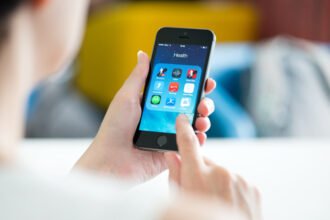 mHealth is all about patient engagement these days, and nowhere was that point driven with more purpose than last week’s Connected Health Symposium.
mHealth is all about patient engagement these days, and nowhere was that point driven with more purpose than last week’s Connected Health Symposium.
 mHealth is all about patient engagement these days, and nowhere was that point driven with more purpose than last week’s Connected Health Symposium.
mHealth is all about patient engagement these days, and nowhere was that point driven with more purpose than last week’s Connected Health Symposium.
The two-day conference, hosted by Partners HealthCare at Boston’s Seaport World Trade Center, featured a wide array of keynotes and panel discussions focused on “the powerful human desire to communicate,” according to Joseph Kvedar, MD, founder and director of Partners HealthCare’s Center for Connected Health and the conference’s host.
That communication could come in a wearable sensor that sends physiological data back to a doctor for real-time analysis, or a text messaging program that enables physicians to push important reminders back to a patient. It might be an app that enables a consumer to research the latest heath and wellness trends, or one that reminds a consumer to schedule an appointment or take medication.
Central to that theme, said Kvedar, is the smartphone, which the average American uses 150 times a day to make a call, send or receive a message, check Facebook or Twitter or check something out online.
“That 150-times-a-day interaction is our opportunity,” he said.
With healthcare undergoing a radical revision in the wake of extensive waste in ineffectiveness, new technologies and platforms that reduce cost and improve clinical outcomes are coming to the forefront. Many of those advancements, said Kvedar, are coming in the digital health arena, which seeks to transform healthcare into 24-hour-a-day health maintenance, where consumers can access health information and connect with their providers at any time and in any location.
That’s giving providers more opportunities to connect with consumers and push targeted health information, but are they doing that the right way? “We have to figure out how to ask the right questions,” said Gary Gottlieb, MD, MBA, Partners HealthCare’s president and CEO, who kicked off the conference.
Donald Berwick, the former head of the Centers for Medicare and Medicaid Services who now serves as the Senior Fellow at the Institute for Healthcare Improvement, compares the American healthcare system to a bridge that was built in the Honduras over a river that later changed course. While the nation’s healthcare system is focused on pay for performance and acute care, he said, the river beneath that bridge has shifted, and the population has changed its focus to health and wellness, chronic illnesses and end-of-life care.
The healthcare system, Berwick said, should instead “support people through the journeys of their lives,” rather than focusing only on when they’re sick.
One of those pressure points is the electronic health record, long a source of controversy in the healthcare world as providers struggle to adapt the EHR to their workflows and find some return on investment. Epic CEO Carl Dvorak said his company is seeing a shift in EHR use as providers learn to use the platform to connect with their patients through video visits, appointment scheduling apps and patient-entered data.
Another critical aspect of patient engagement is empathy. Joseph Cafazzo, PhD, of the University of Toronto’s Center for Global eHealth Innovation, said mHealth has long struggled to find that personal connection that convinces consumers to go along for the ride. Too many apps, devices and other tools, he said, are designed with the clinician in mind, rather than the user.
“We’ve lost something in the design of health technology. We’ve lost empathy,” he said. “Perhaps we never had it.”
Cafazzo, who designed the popular bant app for diabetic teens, said healthcare has to discover – or rediscover – that connection with the patient, and find a way to enhance that in mHealth.
As Kvedar pointed out earlier in the conference, “We need to make it personal again.”
(mHealth / shutterstock)









